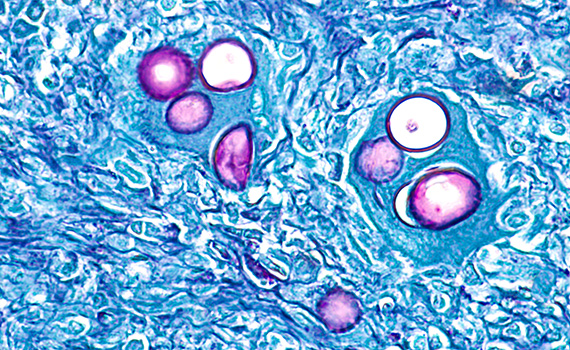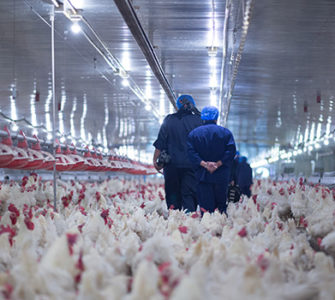Greater understanding needed before new coccidiosis vaccines come to fore
The use of recombinant vaccines can prove a valuable strategy against coccidiosis in poultry, say the authors of a new review, but better understanding of host-parasite interactions and gut microbiology is needed to ensure greater effectiveness of such anticoccidial measures.
Coccidiosis, caused by the protozoan parasites Eimeria spp., is a ubiquitous challenge in global poultry production. Current control measures involve the use of live and attenuated vaccines, ionophores, synthetic anticoccidials and a range of feed additives. But where vaccination is concerned, things may be set to change, the researchers behind the study suggested.
“Live and attenuated parasite vaccines are highly effective for controlling field coccidiosis, but the high cost of vaccine production and their limited availability, not to mention the emergence of drug-resistant Eimeria strains, have generated increased interest in recombinant vaccines as an alternative strategy to control coccidiosis,” they wrote in the journal Vaccines.1
Recombinant ‘work in progress’
The review noted that a number of Eimeria antigens have been identified, with the results of vaccination studies using 11 such targets detailed. A number of positive outcomes were observed, from increased antibody production and reduced shedding of Eimeria oocysts to increased weight gain.
There are a number of different vectors that have been experimentally used to deliver Eimeria antigens in recombinant vaccines to date, the researchers said, with feasibility demonstrated for Salmonella strains, yeast, bacterial vectors and plant-derived vectors. Work looking at adjuvants to potentially increase the efficacy of recombinant vaccines was also noted.
“In comparison to using live and attenuated parasite vaccines, recombinant antigens are safe and more immunogenic since they are selected on the basis of their ability to induce various aspects of protective host immunity,” the authors continued, noting considerable activity in the pharmaceutical industry to develop recombinant vaccine products against coccidiosis.
However, they also note a number of knowledge gaps around such vaccines at this time, including difficulties in finding the right parasitic antigens, cost and a lack of ideal delivery system for vaccinating large flocks.
The road to additional control options
As well as vaccination, the review also looked at a number of treatment options, including pathogen-specific egg yolk antibodies, pro- and prebiotics, host defense peptides, organic acids and other feed additives.
Innovations in these areas represent a major unmet need for the livestock sector, but factors predicting their success or failure are complex, the authors said.
The potential success of such alternatives needs to be judged from multiple perspectives, they argued, with research funders more closely involving farmers, veterinarians and farm advisors in early funding decisions.
Using a combination of management options, combined with good husbandry practices, is the optimum route to ensuring effective control of coccidiosis and continued productivity, the researchers concluded.
The full research paper is available in Vaccines.
1 Lee Y, Lu M, Lillehoj HS. Coccidiosis: Recent progress in host immunity and alternatives to antibiotic strategies. Vaccines. 2022;10(2):215.
Posted on August 3, 2022

















